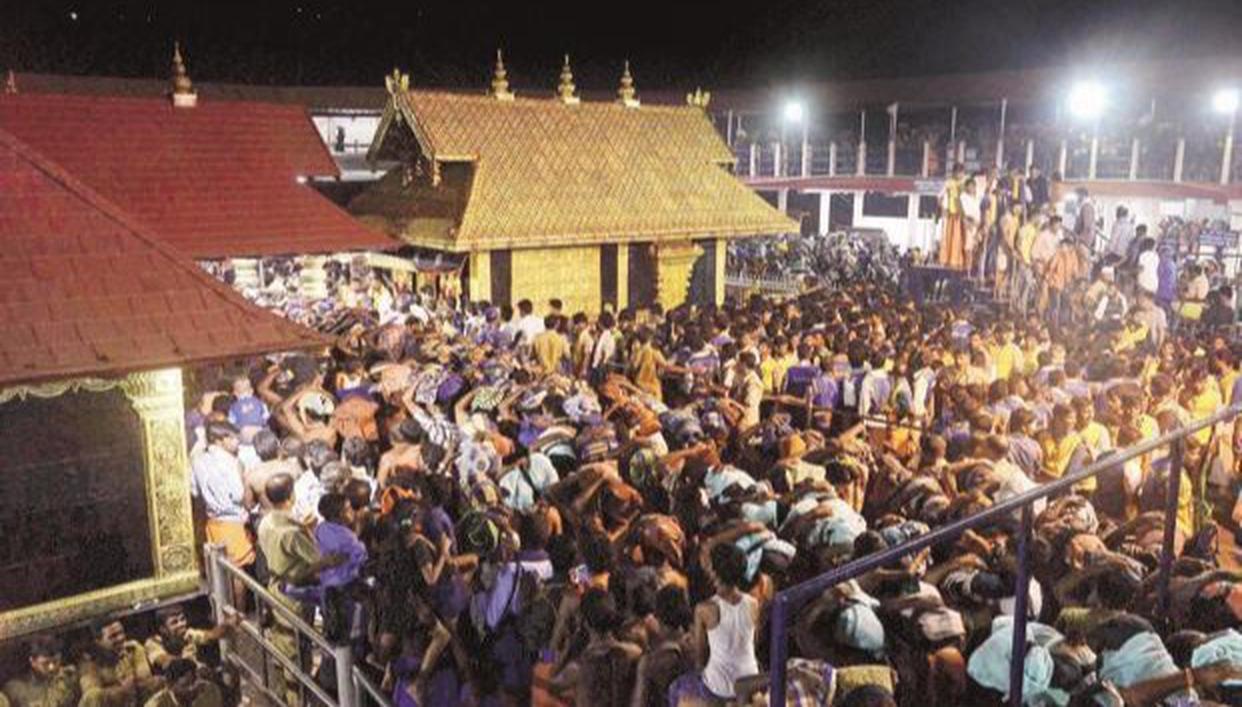NEW DELHI: The All India Sabarimala Action Council (AISAC) welcomed on Monday the Supreme Court’s decision to constitute a nine-judge Constitution bench and hear the issue of allowing women and girls of all ages into the Ayyappa temple in Kerala’s Sabarimala from January 13.
“We are hopeful that the traditions of the temple that prevented entry of women of menstruating age (10-50 years) will be protected and the presiding deity, Ayyappa, will get justice,” council general secretary S J R Kumar told PTI over phone.
The council is one of the petitioners before the apex court.
Considering certain recent judgments of the top court on religious issues, including the Ramjanmabhoomi-Babri Masjid dispute, “we are really hopeful that thousands of years old traditions, customs, rituals of the Ayyappa temple and the faith of the devotees will be upheld and protected”, Kumar said.
To coincide with the “Makara jyoti” festival, (where it is believed that the god appears to devotees in the form of light) on January 15 at the temple, the council had planned to light lamps throughout Kerala, he added.
Kumar, who is also a former president of the Vishva Hindu Parishad’s (VHP) Kerala unit, said though there were 3,000 Ayyappa temples in the country, “there is only one Sabarimala for Ayyappa”.
A five-judge Constitution bench of the Supreme Court, by a 4:1 majority verdict delivered on September 28, 2018, had allowed women and girls of all ages to visit the temple, saying discrimination on physiological grounds was violative of fundamental rights such as the right to equality.
On November 14, 2019, the apex court said a larger bench will re-examine various religious issues, including the entry of women into the Sabarimala temple. According to a temple custom and belief, girls and women of menstruating age (10-50 years) are not allowed as the lord is a celibate yogi and is under meditation. PTI







